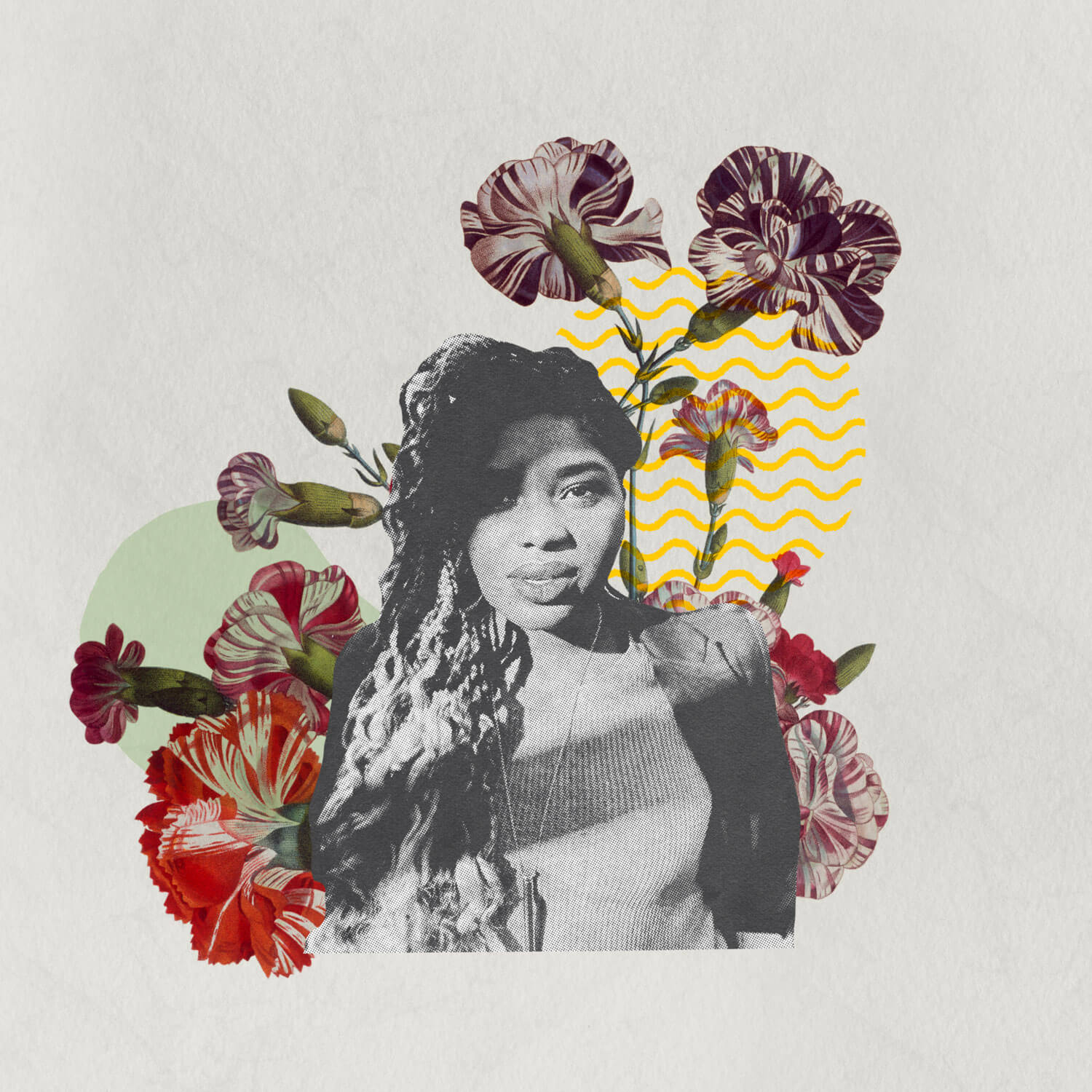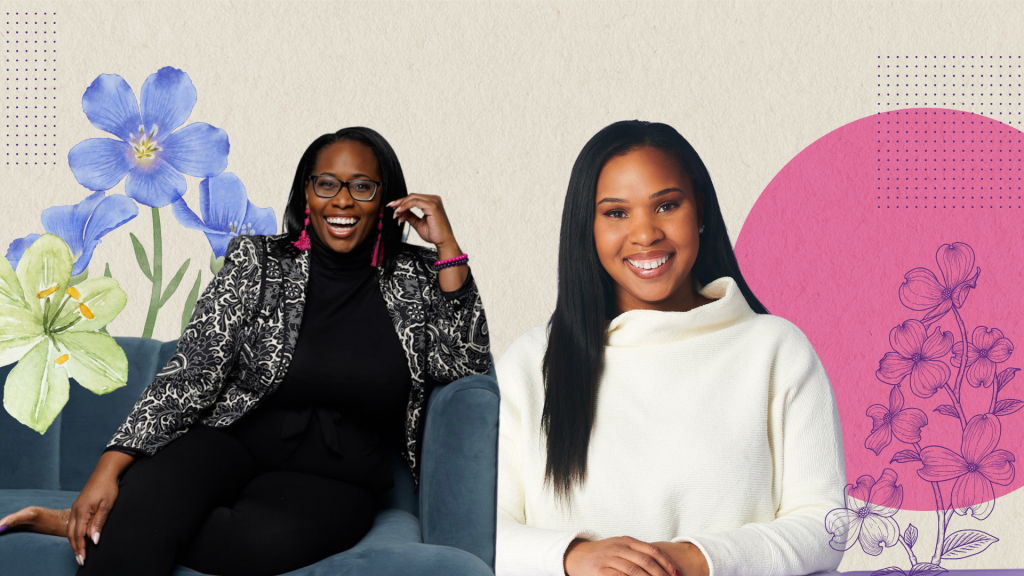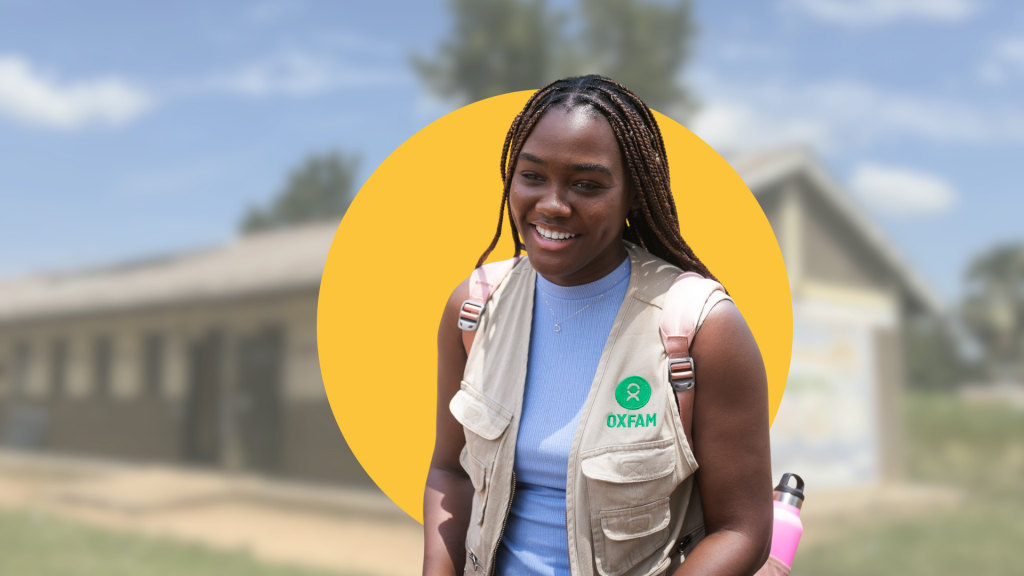Paige Galette: Confronting racism from the workplace to the campground
Oxfam's mission is to fight inequality to end poverty and injustice, no matter where it takes place on the planet. Our feminist approach means that we tackle all the drivers of inequality to advance gender justice - which inherently means we must fight racism to achieve equality.
This year, Oxfam Canada is celebrating Black History Month in Canada by featuring the stories and reflections of Black Canadian women who are creating change in their communities by leading the fight against racism and oppression, each in different ways.

"It’s always the people whose lived experiences are forgotten that need the loudest megaphone. We need to hear from them and we need to support them however we can."
Paige Galette is an activist, community organizer and co-founder of Northern Voices Rising. She has been spreading her message of anti-racism for years, notably through her work within the Canadian labour movement. Born in Montréal and raised in London, Ontario, Paige now lives and works North of 60 in Whitehorse, Yukon, on the traditional territory of the Kwanlin Dün First Nation and Ta’an Kwäch'än Council.
We spoke with Paige about her passion for activism, the difference between education and change (spoiler: it’s not the same), racialized life in Yukon and all about that one tattoo she regrets.
Listen to the full interview here:
You say that you live and breathe activism. How did it all begin?
I am from a lineage of very strong women and that was very obvious to me at a very young age. I was told to take my space and to say no, and when I said no, people needed to understand that. I was told that I had a voice. The more I grow and the more I have wisdom, the more I learn where that comes from.
As for activism, I like to say that it started when I was seven, when my mom brought me to the picket lines in the good old Mike Harris days. Fast-forward to when I was in university and I was part of the student movement which then led me to the labour movement.
But as much as I love being involved in the labour movement, I am very critical of the labour movement in Canada.
How so?
When you look at the make-up of the labour movement, when you look at the people in positions of power, you always see the same people and often, they are white men. As racialized workers, as women, within the labour movement, we are put on these pedestals for being the representatives of these groups. But when it comes to speaking our truth and really advocating for our needs and the request for respect and dignity in the workplace, we get into these roadblocks. I have to acknowledge that the labour movement itself is recognizing and many unions are recognizing this gap of who is in power and who are the activists on the ground. But again, we have to push and do more.
What does change look like?
Often it looks like people who are in these positions of power of letting go of that power. That is the hardest one, right? When people are willing to be educated but don't want to let go of their positions of power, at the end of the day, what work and what change are you really doing? You have to start by the recognition and saying OK, I am willing to see change, and then recognizing your limitations. If I am somebody in a position of power, what am I able to do?
What are ways that everyone can practice anti-oppression and anti-racism in their own lives?
Whenever I get that question I stop saying 'Educate Yourself' because I feel like, there is more than you can do than educate yourself. I feel like educating yourself is so 2014. You should have educated yourself a long time ago. It shouldn't require one of us to die or something so traumatic to happen for you to educate yourself. Instead, I will say being willing, able, and committed to change.
I think the COVID perspective has brought a lot of reflection for people. Look how fast we were able to change for COVID. At some point I started laughing because suddenly everybody is seen as essential workers, we were supporting them, the CERB was out, we were all out there supporting each other! When we make things our priority, change can happen. And change can happen quite rapidly. For anybody who wants to get involved in the anti-racist movement and says I don't know how, I don't know why, I'd say think of COVID! Ask yourself are you really willing and able and ready to make it your priority? If so, you can make that change and you can make it within a couple of months.
What about global solidarity on the work to build more anti-racist communities? What does it look like to you?
I think it's important to know the history and the struggles that have happened and that continue to happen. Whether these struggles have different faces or different names, there's a root. And when you know the root cause, you're able to name it, you're able to dismantle it.
In terms of solidarity, it starts with grassroot work. In my experience, I find that it's always the people who are on the ground, people whose lived experiences are often forgotten that need the loudest megaphone. We need to hear from them and we need to support them however we can.
We also need to make a connection between the anti-racism work and the other work that has happened before the term 'anti-racist' became hot and in fashion. I'm talking about the anti-capitalist movement, the anti-homophobia movement, the anti-transphobia movement ... we can't forget them! We need to recognize that we wouldn't be where we are today without their work, their solidarity and without all the sacrifices they made.
We need to make sure that we continue to tell their stories when we do work for our futures.
Does gender play into your experience of being Black in Canada?
Absolutely! When I am talking about the change in leadership roles, we have to recognize that right now white men are very much the focus, and I think the feminist movement has done a really good job in making sure that women get into positions of power. We see a lot of conferences for women, we see a lot of dialogue for women in leadership, but ... those conferences and dialogues have been very exclusionary. They haven't included Black women. And more specifically, they haven't included trans women and racialized and Black trans women.
Gender plays a huge role when we're talking about change. It's (about) being willing, able, and committed to making sure that when we're talking about space for people, we mean every person.
Has this impacted your relationship with feminism?
Oh gosh, I remember when I was a student ... I got a tattoo that says 'Feminist'! I was so proud of my feminism! It wasn't until I moved to Toronto, and Black Lives Matter Toronto started bumpin', that I was like Oh, wait a second, my feminism was actually very exclusionary of my people. I had to rethink of what feminism looks like for me, and that was hard … especially when you have a tattoo (laughs)!
It was a moment of self-reflection and you know, when I talk about letting go of your power, of your privilege and being willing and able and committed to change, that was the moment for me where I was like, am I really associated to this movement or am I more associated to the Black feminist movement? What does my feminism look like? Who does my feminism involve?
Tell us about living up North and the connection between your identity, community and place.
The fact that I live in Whitehorse is quite surprising! I came here to search for community that I didn't necessarily have in Toronto. As much as I had Black community in Toronto, it's a busy city which means we were always busy, we were always rushing, there was always something going on. I needed space to breathe and to acknowledge who is around me, and that is what I found in Whitehorse.
I actually had a conversation with a friend of mine recently where we talked about how as racialized people, especially in Canada, we're not encouraged to embrace winter or embrace the outdoors, which is fascinating because often, we are people who are outdoorsy people. You know, we talked about generations who were farmers who did touch and grow earth, who know spices who were outdoors, who had survival, and it's fascinating how colonization takes these things from us. So, for me being outdoors was kind of a way of decolonizing my mind frame, decolonizing my education around Canada.
I always follow Instagram accounts that are about being outdoors while being Black, skiing while Black, or even racialized voices doing outdoor things because for me, it's exciting! We have different fears. Sometimes, our fears, especially here in Yukon are grizzly bears, and wolves and whatnot. But, our fear is also being on a terrain where people might not see us belonging. I have that fear of going camping somewhere and having to confront racism!
Even with Northern Voices Rising being created, I found a community that I never thought I would find and that is my queer community, my racialized community and specifically being able to talk about our issues, being 'a minority' in the North. Across Canada we never talk about the North and very rarely do you hear the BIPOC voices of the North. And that was really exciting for me. I actually, surprisingly, found my Haitian community in Whitehorse! You would think I would find that in Ottawa or in Toronto but no, I found my Haitian siblings North of 60, who knew!
This line of work can be quite challenging. What keeps you going?
I'm someone who is very positive, and for me, the future is bright because we are having these conversations. But I also think of this summer when we co-created Northern Voices Rising. Following the deaths of George Floyd and Regis Korchinski-Paquet, we decided to do a rally in Dawson City and in Whitehorse - on the same day that camping season begins in Yukon, which is a really big deal.
Well, in Whitehorse, we had over 900 people show up. This was on the first day that people were able to go camping! That says a lot.
I have never seen so many people come out in support of racialized voices and especially of Black and Indigenous voices. From there we realized that if people are willing and able to come out and rally, we can do more work. We can be the change we want to see.

